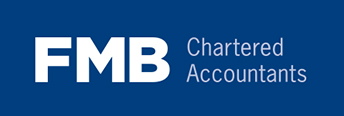There was “cause for hope” in the new White House administration’s approach to tariffs, Minister of State for Trade, Employment and Enterprise Peter Burke has said.
Speaking in Davos where the World Economic Forum is under way, Minister Burke was referring to Howard Lutnick, co-chair of US President Donald Trump’s transition team, saying that talk of tariffs was more of a “negotiating tactic”.
The minister added that Ireland was doing two critical things in the US.
“Firstly, we’re telling the narrative that the trade relationship between Ireland and the US, when you include services and goods, has a very significant surplus in favour of the US.”
The second part, he said, is an Action Plan for Competitiveness, as outlined in the Programme for Government, due to be published in the first 12 months of the new government’s term.
Minister Burke added that he feels Ireland is well insulated to deal with any secondary concerns that may arise as a result of tariffs.
“If you look at the first Trump administration from 2016, in relation to aluminium and steel, there were very early tariffs,” he said.
“In Canada, for example, they responded in a way that hit ordinary US citizens.
“President Trump is a businessman. He knows that when you impose tariffs there can be costs and significant costs to the US economy as well,” he added.
President Trump did not immediately impose tariffs as previously promised but directed federal agencies to “investigate and remedy” persistent US trade deficits and unfair trade practices and currency manipulation by other countries.
Mr Trump, who was sworn in yesterday, said in his inaugural address that the US would collect “massive amounts” of income from foreign trade duties as his administration works to rebuild US industry.
In 2023, the €54 billion of exports to the US from Ireland were concentrated in the pharmaceutical, medical and chemical sectors, which between them make up more than three quarters of total sales to the US.
President Trump has had Irish-based US pharmaceutical companies in particular in his crosshairs for years.
“You look at Ireland, they make our drugs. Everybody makes our drugs except us,” he told Fox News in 2020.
Mr Trump imposed some tariffs during his first term in office, including levies of up to 25% on global metals and a variety of products from China.
During his most recent election campaign, Mr Trump vowed to impose steep tariffs of 10% to 20% on global imports into the US and 60% on goods from China to help reduce a trade deficit that now tops $1 trillion annually.
He also vowed to impose 25% duties on goods from Canada and Mexico on his first day in office, if they failed to clamp down on the flow of illicit drugs and migrants entering the US illegally.
Such duties would tear up long-standing trade agreements, including the US-Mexico-Canada Agreement (USMCA), upend supply chains and raise costs, according to trade experts.
Trade analysts said they still expect Mr Trump to press ahead with a global tariff early in his administration.
“The universal tariff was a core part of the economic plan he ran on and I think he’s going to do what he said he would,” said Kelly Ann Shaw, a former White House trade adviser during Mr Trump’s first term.
“This is an idea he’s supported for a long time,” Ms Shaw, now with the Hogan Lovells law firm, said in an interview last week.
Article Source – ‘Hope’ in US approach to tariffs, says Burke – RTE






